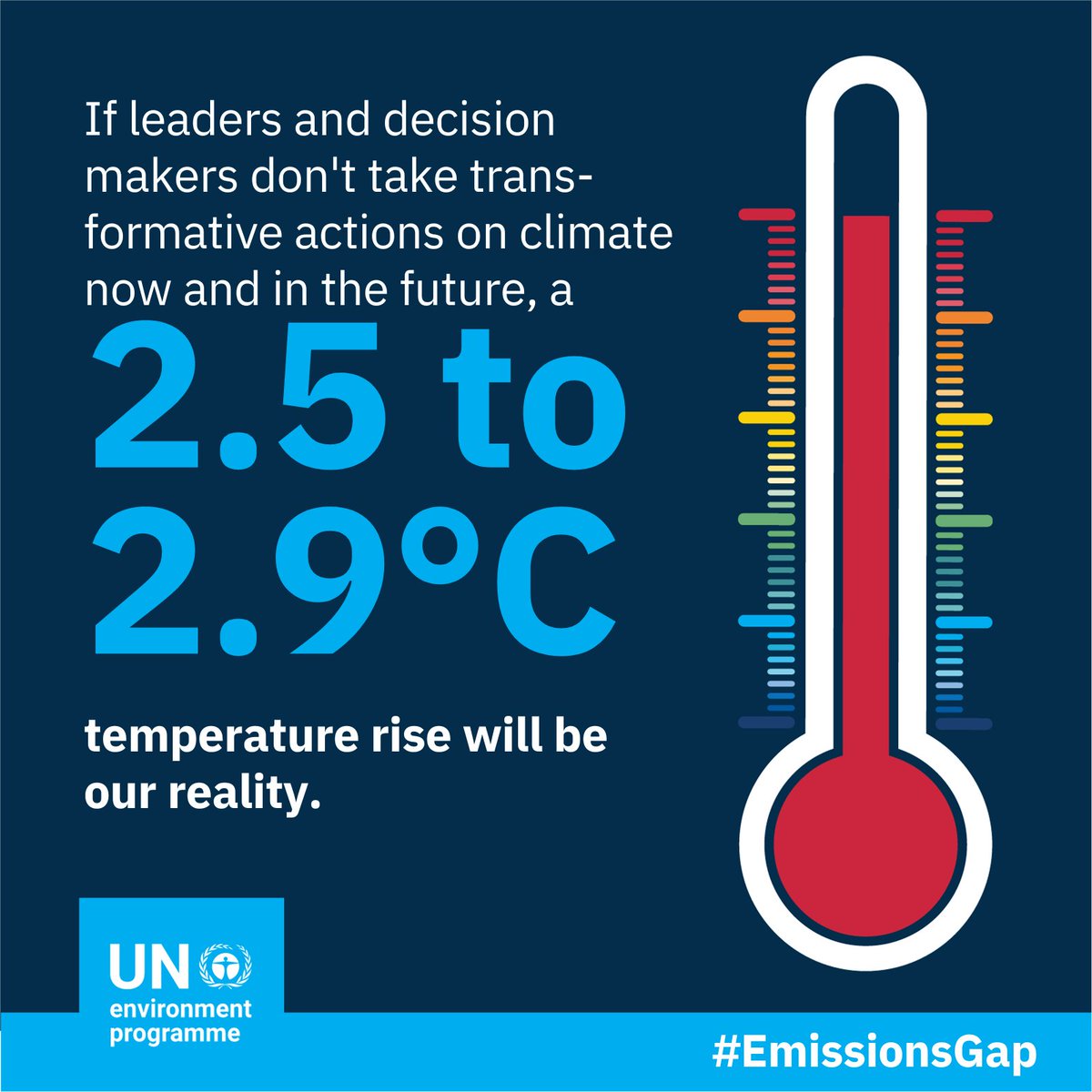Ahmedabad
(Head Office)Address : 506, 3rd EYE THREE (III), Opp. Induben Khakhrawala, Girish Cold Drink Cross Road, CG Road, Navrangpura, Ahmedabad, 380009.
Mobile : 8469231587 / 9586028957
Telephone : 079-40098991
E-mail: dics.upsc@gmail.com

Emissions Gap Report – UNEP
News: Recently, United Nations Environment Programme (UNEP) has released a report titled- the Emissions Gap Report 2023: Broken Record – Temperatures hit new highs, yet world fails to cut emissions (again).
What is Emissions Gap Report?
• The Emissions Gap Report 2023 by the UNEP provides an overview of the difference between where greenhouse emissions are predicted to be in 2030 and where they should be to avert the worst impacts of climate change.
Key Findings:
• The international community is falling far short of the Paris goals, with no credible pathway to 1.5°C in place.
• Policies currently in place point to a 2.8°C temperature rise by the end of the century.
• Implementation of the current pledges will only reduce this to a 2.4-2.6°C temperature rise by the end of the century, for conditional and unconditional pledges respectively.
• Greenhouse Gas Emissions (GHG) hit a new record of 57.4 Gigatonnes of Carbon Dioxide Equivalent (GtCO2e) in 2022, with a 1.2% increase from the previous year.
• Emissions can be split into five major economic sectors, Energy supply, industry, agriculture and Land use, landuse change and forestry (LULUCF), transport and buildings. In 2022, energy supply was the largest source of emissions at 20.9 GtCO2e (36% of the total), followed by Industry (25%), followed by agriculture and LULUCF CO2 (18%), transport (14%) and buildings ( 6.7%).
• The report finds that only an urgent system-wide transformation can deliver the enormous cuts needed to limit greenhouse gas emissions by 2030.
The Emissions Gap Report 2023 has made several recommendations to bridge the emissions gap:
• Adopting reduction targets in fossil fuel production: Governments should aim to produce approximately 110% less fossil fuels by 2030 than is consistent with limiting global warming to 1.5°C.
• Ensuring an equitable transition: The transition should consider the circumstances of different countries.
• Phasing out coal production and use by 2040: A near-total phase-out of coal production and use by 2040 is recommended.
• Reducing oil and gas production and use by 75% by 2050: This reduction should be compared to 2020 levels.
• Ending reliance on fossil fuels: This includes avoiding a lock-in of new fossil fuel infrastructure and investing massively in renewables.
Other reports released by UNEP:
• Production Gap Report, Adaptation Gap Report, Turning off the Tap report.

Address : 506, 3rd EYE THREE (III), Opp. Induben Khakhrawala, Girish Cold Drink Cross Road, CG Road, Navrangpura, Ahmedabad, 380009.
Mobile : 8469231587 / 9586028957
Telephone : 079-40098991
E-mail: dics.upsc@gmail.com
Address: A-306, The Landmark, Urjanagar-1, Opp. Spicy Street, Kudasan – Por Road, Kudasan, Gandhinagar – 382421
Mobile : 9723832444 / 9723932444
E-mail: dics.gnagar@gmail.com
Address: 2nd Floor, 9 Shivali Society, L&T Circle, opp. Ratri Bazar, Karelibaugh, Vadodara, 390018
Mobile : 9725692037 / 9725692054
E-mail: dics.vadodara@gmail.com
Address: 403, Raj Victoria, Opp. Pal Walkway, Near Galaxy Circle, Pal, Surat-394510
Mobile : 8401031583 / 8401031587
E-mail: dics.surat@gmail.com
Address: 303,305 K 158 Complex Above Magson, Sindhubhavan Road Ahmedabad-380059
Mobile : 9974751177 / 8469231587
E-mail: dicssbr@gmail.com
Address: 57/17, 2nd Floor, Old Rajinder Nagar Market, Bada Bazaar Marg, Delhi-60
Mobile : 9104830862 / 9104830865
E-mail: dics.newdelhi@gmail.com